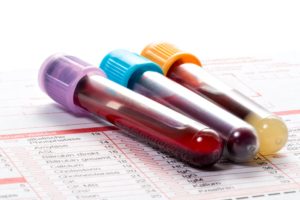 There are a lot of things you can look at to get an idea of how you’re aging. Blood is a big one. Your blood can indicate cholesterol, blood sugar, inflammatory markers, and nutrient deficiencies. All of these things say much more about your age than the lines on your face or pain in your back.
There are a lot of things you can look at to get an idea of how you’re aging. Blood is a big one. Your blood can indicate cholesterol, blood sugar, inflammatory markers, and nutrient deficiencies. All of these things say much more about your age than the lines on your face or pain in your back.
A new study sheds an even greater light on the signs of aging in blood. Published in the journal Nature Medicine, researchers from Stanford University found links between 373 various proteins and aging. To get their results, they took plasma samples from 4,200 people between the ages of 18 and 95. Roughly a third of the proteins they examined were associated with aging.
Advertisement
Proteins are essentially the workhorses of your body’s cells, and if they undergo changes, then you do too. They provide a picture of what’s happening in your body.
Although this could be a very helpful tool and potentially go on to identify risk factors for countless health conditions, it’s not going to help you right here and now. Instead, looking at your current health and habits can help you address your biological age and construct an anti-aging plan of your own.
If you’re overweight, have high blood pressure and blood sugar, managing those conditions is an excellent place to start. All of those conditions are associated with inflammation, which can put plenty of pressure on your cells leading to aging and damage.
Eating antioxidants can help, so getting a diverse array of fruits and vegetables is a good idea. These nutrient-dense plant-based foods can replenish the fuel that keeps your cells functioning optimally. These superfoods can battle inflammation and promote optimal health.
Stress and sleep also play a big role on aging. Finding ways to get better sleep and manage stress can give your cells a rest, let them clean up and recuperate. Stress can wear them down, and can speed up the aging process substantially.
It’s great to have a potentially new tool to identify biological age and risk factors (although it’s unlikely to be available in the next five years) but it might be too little, too late. Instead, give yourself a better idea of how you’re aging by adopting a healthy anti-aging lifestyle.
